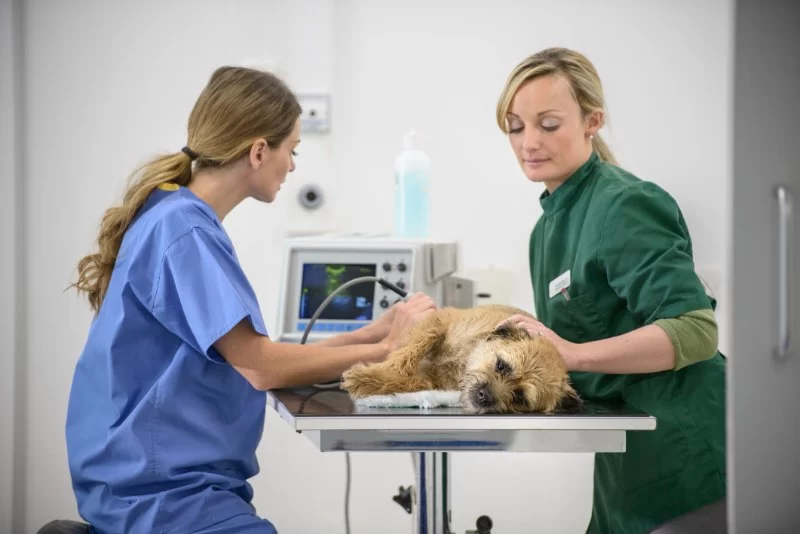Veterinary Surgeon Salary Guide: What You Can Expect to Earn
- average-salary-of-a-veterinary-surgeon
- factors-that-influence-a-vet-surgeons-income
- salary-comparisons-between-countries-and-specialties
- real-life-example-dr-kaylas-journey
- how-to-maximize-your-earnings-as-a-veterinary-surgeon
1. Average Salary of a Veterinary Surgeon
1.1 What You Can Typically Expect
When exploring how much a veterinary surgeon makes, it's important to know the range. In the United States, the average salary for a veterinary surgeon ranges between $100,000 and $180,000 annually. Entry-level professionals may start around $80,000, while seasoned surgeons in high-demand locations or specialties can earn well above $200,000.
1.2 Surgeons vs. General Practitioners
Veterinary surgeons generally earn more than general veterinary practitioners due to their advanced surgical training and the complexity of their procedures. Whether it’s orthopedic surgery or soft tissue repair, specialized skills command higher pay.
2. Factors That Influence a Vet Surgeon’s Income
2.1 Location, Location, Location
Geography plays a huge role. Veterinary surgeons in metropolitan areas or regions with high cost-of-living (such as California or New York) often make more than those in rural towns. However, rural vets may have fewer competitors and a more loyal client base, balancing the equation.
2.2 Experience and Education
Like most medical fields, more experience equals higher earnings. A board-certified veterinary surgeon with 10+ years of practice can command top-tier salaries. Continued education, residency completion, and specialization all contribute significantly to earning potential.
2.3 Workplace Type
Working at a private specialty clinic may offer different pay structures compared to university hospitals or nonprofit animal shelters. Surgeons in referral hospitals typically receive higher compensation than those in general clinics.
3. Salary Comparisons Between Countries and Specialties
3.1 United States vs. UK vs. Australia
In the UK, the average veterinary surgeon salary is approximately £60,000 per year, which is generally lower than in the U.S. In Australia, surgeons earn between AUD $120,000 and $200,000 annually, depending on location and credentials. Differences often stem from national demand, training duration, and healthcare systems.
3.2 Small Animal vs. Equine vs. Exotic
Specializing in exotic or equine animals can also affect earnings. Small animal surgeons often benefit from a larger market, while equine specialists may face seasonal or location-based limitations. Exotic specialists, though niche, can command higher fees due to limited competition.
4. Real-Life Example: Dr. Kayla’s Journey
4.1 From Passion to Paycheck
Dr. Kayla started her career with a love for animals and a dream to make a difference. After earning her DVM and completing a 3-year residency in surgery, she launched her career in a busy Chicago specialty hospital. Within 5 years, her salary rose from $95,000 to $210,000, thanks to her reputation and specialization in orthopedic surgery.
4.2 Turning Skills into Income
What set Kayla apart wasn’t just technical expertise—it was her client communication and efficiency. Clients trusted her, and referrals grew. Her story shows how personal development and a focus on patient outcomes can directly influence how much a veterinary surgeon makes.
5. How to Maximize Your Earnings as a Veterinary Surgeon
5.1 Expand Your Skills
Certification in high-demand surgical procedures—such as TPLO (Tibial Plateau Leveling Osteotomy) or minimally invasive techniques—can set you apart. Additionally, attending conferences, publishing case studies, and joining veterinary associations adds to your credibility.
5.2 Consider Consulting or Teaching
Veterinary surgeons can supplement their income through teaching, consulting, or even creating digital educational content for pet owners and fellow vets. The digital age provides fresh income streams that weren’t possible two decades ago.
5.3 Invest in Tools That Support Growth
Investing in surgical equipment, diagnostic tools, or management software can improve service quality—and with it, your earning potential. Whether you’re running your own clinic or aiming for partnership, smart investments make a difference.
5.4 Ready to Take the Next Step?
If you're aspiring to become a top-earning veterinary surgeon or seeking to grow your current income, take your professional journey seriously. Explore resources, clinics, and services that support your goals. At Hidden Brook Veterinary, we not only care for animals—we also believe in nurturing veterinary careers. Learn how we can support your growth today.












